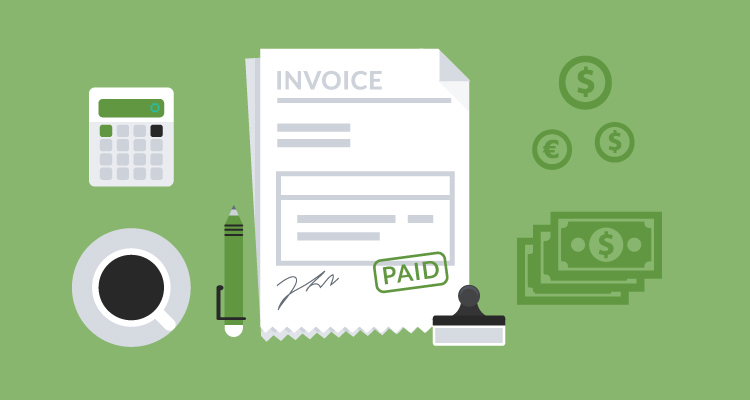Billing may not be your favorite task. But, it’s essential for business owners and freelancers. If not maintained, you’ll be unable to pay your expenses and keep the cash flowing. But, just because you’re billing your clients doesn’t necessarily mean that you’re doing it the correct way. In fact, here are 8 common billing habits that are actually killing your business.
Table of Contents
Toggle1. Being too trustworthy.
“The handshake is important to business because trust is central to all relationships. In an ideal world, a handshake would be all that an entrepreneur or executive needs to seal a deal with a business partner, an investor, a company or a client—after all, reputation is everything in life as it is in business, and if you break your word, you damage your reputation,” Richard Branson wrote on the OPEN Forum.
Unfortunately, we don’t live in such a world. Whether if it’s the economy or just dealing with a rotten individual, you can’t rely strictly on trust. To protect yourself, and your your business, you should have your clients sign a contract so that they can’t bail on you when a bill arrives. It doesn’t have to be complicated. Just keep it simple by agreeing on the scope of the work and payment terms.
As Branson recommended, “By all means, shake hands on a deal, but then make sure to ask your lawyers to record the details. It could be the best bill you ever pay!”
2. Generating inaccurate invoices.
Want a bill to get paid faster? Make sure that it’s accurate by billing your client for the right amount for the right work at the right time. If you use recurring payments, this may not be a major concern, but always take the extra couple of minutes to double-check your invoices to make sure that they’re accurate before being sent out.
3. Billing your clients for everything.
While this may not be applicable for every industry, it’s easy to believe that you should charge your clients for everything. Let’s say that you’re an attorney and are already making a decent hourly rate, do you think that you’re clients are going to happy that you’re nickeling and diming them for emails, telephone calls, and even copy-and-pasting subpoenas? Of course not.
I understand that you’re time is valuable, but how often is a client going to take-up your entire day by emailing and calling you? If so, you either have to set boundaries or let the client go.
4. Starting projects without retainers.
This is one the most common mistake that freelancers or new business owners mistakes. And, it’s easy-to-understand why. You don’t want to come across as too overbearing. The thing is, asking for money upfront is a far-fetched request. It’s actually normal.
The reason why you’re asking for a down payment is for two reason. The first, it can cover your expenses to get a project started. The second reason is that if something happens to the client or company that hired you, you’ll at least still be compensated for some of your hard work.
5. Not clearly establishing payment terms.
The payment terms between you and the client should be addressed, and agreed upon, when you sign a contract. These terms should include the due date, preferred payment options, incentives for paying early, and the interest you charge for late payments.
Not only does this protect you from getting stuck with a bill since you can take legal action if you want, it also prevents the client from getting shocked when they review the invoice.
6. Collecting in arrears.
Waiting to send out invoices means that it will take longer for you to get paid. This can result in you decreasing your cash flow and throwing off your budget. And, most importantly, it leads to you not being able to pay your expenses.
Always bill your clients immediately when a job is complete – unless you’ve both agreed on a specific date like the first of the month. We actually found that when an invoice is sent out on the same day as the gig is completed you’re 1.5x more likely to get paid on-time.
7. Not staying organized.
Without having an organizational system in place, how can you tell which clients have paid and which haven’t? How easily can you retrieve a bill if a client has a question or if you get audited by the IRS?
If you’re using invoicing or accounting software, keeping your bills organized in one convenient location isn’t a major concern. You can obviously sort your invoices by client name as well. However, you should still use a numbering system to track and manage your invoices. Just start with 001 and work your up.
8. Relying too much on automation.
I pay my car insurance every quarter. When I don’t have a monthly expense, it’s easy to forget about these types of bills. The problem? My insurance company auto-withdraws from my bank account. Even though I receive a reminder now, and have the money in my bank account, this used to be a concern when money was tight and communication wasn’t as effective.
You clients are probably experiencing the same thing on a daily basis. They receive invoices daily. And, if you aren’t a regular bill, it’s easy for them to misplace your payment, that’s why invoicing software also sends auto-reminders to clients when an unpaid bill is approaching it’s due date – or when the payment is late.
If you have worked with a client for years and have never experienced a late payment from them, then don’t wait for an automated message. Pick-up the phone or shoot them a quick email and follow-up with them.
In other words, don’t get complacent by relying too much on automation. While technology has definitely made billing less painless, it’s still your responsibility to make sure that client’s pay your invoice in a timely manner.













